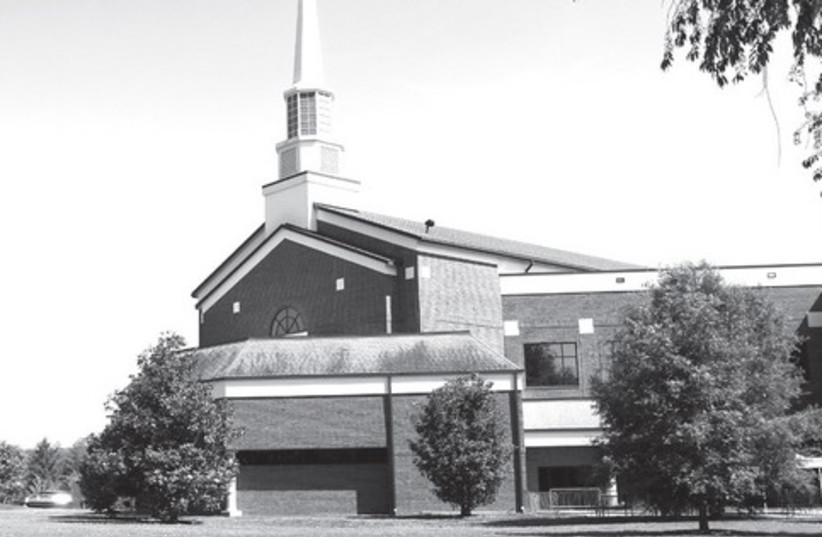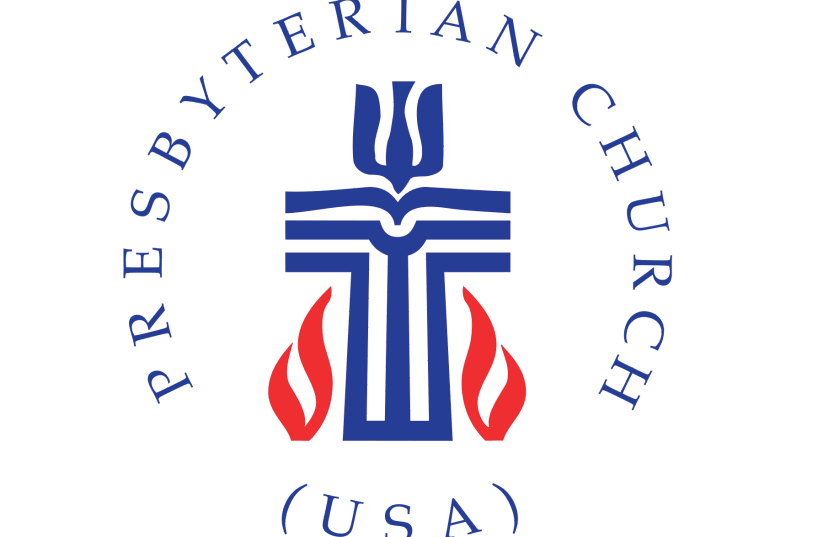The resolutions called Christian Zionist doctrine heretical and idolatrous and compared Israel’s treatment of the Palestinians to the Holocaust.

The US Presbyterian Church voted to declare Israel an apartheid state and establish a Nakba Remembrance Day, as well as passing two other resolutions highly critical of Israel on Tuesday at the American religious body’s 225th General Assembly.
“Israel’s laws, policies and practices regarding the Palestinian people fulfill the international legal definition of apartheid.”
US Presbyterian Church 2022 Resolution
“Israeli Apartheid” compared to Holocaust
The US Presbyterian Church’s International Engagement committee voted overwhelmingly to recognize that “Israel’s laws, policies and practices regarding the Palestinian people fulfill the international legal definition of apartheid,” as they had determined that Palestinians were systematically oppressed through inhuman acts for the objective of racial domination.
The resolution claimed that there were two sets of laws for Israelis and Palestinians, which are preferential for the former and oppressive to the latter. It also asserted that Palestinian land and water were stolen for use by “Jewish-only settlements” and that Palestinians were denied freedom of residence and movement, living in “separate reserves and ghettos,” echoing language used in the resolution passed on the same subject at the North Carolina Democratic Party (NCDP) state convention on June 18.
The church claimed that Non-Jewish Arabs living in Israel and the disputed territories have “an inferior status” and Palestinians are unable to participate in the “political, social, economic and cultural life of their country.”
“This overture is pursued with the hope it will lead to a peaceful reconciliation for the people of Israel and Palestine similar to that which occurred in South Africa when apartheid was internationally acknowledged,” the resolution explained as the rationale behind the vote.
“Christians spoke out in the 1950s against segregation in the United States and later against apartheid in South Africa. They must again raise their voices and condemn Israel’s discrimination against Palestinians and give a name to the crime against humanity that this discrimination represents, the crime of apartheid,” it said.

The resolution rejected concerns among Christians that ascribing the term apartheid to Israel could lead to characterizations of antisemitism, having an undue focus on Israel, or hampering constructive dialog, noting that some Christians won’t engage in legitimate criticism because of the Holocaust and the failure of some Christian groups to speak against the tragedy.
“After World War II when the horror of the Nazi Holocaust was revealed, Jews around the world said ‘never again,'” read the resolution. “Christians too vowed that never again would they be silent if a government passed laws establishing and maintaining the domination by one ethnic group over another ethnic group through systematic separation, oppression and denial of basic human rights. Silence in the face of evil was wrong then, and it is wrong now.”
Notably, the Racial Equity Advocacy Committee supported the resolution with the recommendation that it replace mentions of antisemitism with “anti-Jewish” as it believed that antisemitism ” encompasses other people groups in addition to our Jewish siblings.”
The Church’s Advisory Committee on Social Witness Policy acknowledged this resolution would mark a change in the current policy of the church, but advised the General Assembly to approve the item.
Only a few days prior, the NCDP indicated that Israel was committing the crime of apartheid and passed a resolution demanding the US condition arms sales and security assistance to Israel on ending these practices.
In January, the Stated Clerk Rev. Dr. J. Herbert Nelson II of the US Presbyterian Church described Israel’s treatment of Palestinians as “enslavement.”
Commemorating Nakba Remembrance Day
The International Engagement Committee unanimously passed a resolution directing Church leadership bodies to designate May 15 as “Palestinian Nakba Remembrance Day” and to commemorate it annually as part of the Presbyterian Planning Calendar.
Each May 15, Palestinians commemorate the Nakba (catastrophe) – the establishment of the State of Israel and the exodus of Palestinian refugees caused by the 1948 War of Independence when the nascent state was attacked by several of its Arab neighbors.
The resolution emphasized past documents that state that the Nakba “does not refer to the establishment of Israel itself, but rather the effect that the war had on the Palestinian people,” which the new resolution described as the “expulsion by terrorism and force of 750,000 Palestinians, both Christian and Muslim.”
The resolution comes days after an NCDP resolution to propose the establishment of “Nakba Remembrance Day” to the state’s General Assembly, and over a month after a Nakba Day commemoration resolution was submitted in mid-May to the House Committee on Foreign Affairs by Rep. Rashida Tlaib (D-Michigan, 13th District).
Collective punishment of Palestinians
The Presbytery of New Castle’s resolution calling for an end to the “siege of Gaza” and the “collective punishment of innocent Palestinian and Israeli citizens,” also passed unanimously at the 2022 General Assembly.
The resolution called on Israel to end all military action in Gaza, which it described as being disproportionate and collective punishment against Palestinians.
Despite the Church recognizing that Israel’s strikes on military targets were not in violation of international law, they felt that since the strikes sometimes harmed civilians, they constituted collective punishment.
The resolution also described the blockade of Gaza as collective punishment and called on the Israeli government to lift it. It claimed that while the government had ended the military administration of Gaza in 2005, it continued to control border movement according to Israeli interests.
Since 2005, Gaza has been ruled by the terrorist organization Hamas, which has launched cross-border attacks and rockets against Israeli civilians.
The resolution also called on Gaza to stop firing rockers indiscriminately into Israel, which it also described as a policy of collective punishment. However, only two short sentences addressed Gazan actions, placing the bulk of its attention on Israel.
“Heightened Zionist-Jewish identity” of Jerusalem
Another item unanimously passed by the church’s International Engagement Committee was a recommendation on the church’s concern about Jerusalem.
“The face of Jerusalem has been changing rapidly in the direction of a heightened Zionist-Jewish identity, with intensified restrictions on the movement, residency and human rights of Muslim and Christian Palestinians,” read the statement. “The State of Israel’s policies steadily increase inter-religious tension with their disregard for the historic claims and freedom of worship of Muslims and Christians.”
The Church called for freedom of worship in Jerusalem and what it called the “frequent exclusion of categories of visiting Muslim and Christian worshipers from entry to the city, even on holy days.”
It extolled the “status quo” for shared holy sites that it believes prevented tensions between religious communities, citing “historic respect” to holy sites “going back to the British and the Ottomans and well before,” though it did recognize the limitations placed on Jewish worship in the city.
The statement singled out the installment of metal detectors at the Temple Mount, which it claims saw “massive nonviolent resistance” in response. The Temple Mount and the Al-Aqsa Mount has been a flashpoint of violent clashes between Palestinian rioters and Police. Earlier in the year, riots erupted when rumors spread that Jews would practice Jewish religious rites on the Temple Mount and seize full control.
Beyond religious tolerance, the church rejected the Trump administration’s move of the US embassy to Jerusalem, saying that it damaged peace prospects.
The church also said in the statement that it rejected “the doctrines of Christian Zionism that tend toward idolatry and heresy.”
“The face of Jerusalem has been changing rapidly in the direction of a heightened Zionist-Jewish identity, with intensified restrictions on the movement, residency, and human rights of Muslim and Christian Palestinians.”
US Presbyterian Church 2022 resolution
Reaction to the resolutions
Arsen Ostrovsky, CEO of The International Legal Forum, condemned the resolution declaring Israel an apartheid state.
“This resolution by the Presbyterian Church, with its plethora of antisemitic tropes, crosses all acceptable boundaries and descends into full-blown Jew-hatred, that will only incite and fuel further violence against Jews,” said Ostrovsky. “Furthermore, by making such mendacities accusations and deplorably invoking the Holocaust to compare to contemporary Israeli policy, places the Presbyterian Church in direct and flagrant violation of the International Holocaust Remembrance Alliance working definition of antisemitism, the most widely adopted global definition of modern antisemitism, including in the United States.”
The church has garnered criticism in the past for its harsh position on Israel. In February it joined 29 NGOs in calling on US Congress to reject the Abraham Accords, describing the peace deal normalizing relations between Israel and Arab states as “dangerous.”
Content retrieved from: https://www.jpost.com/christianworld/article-710725.